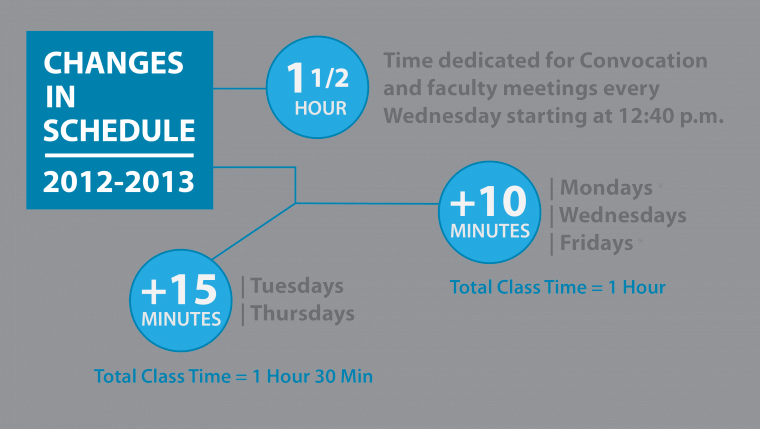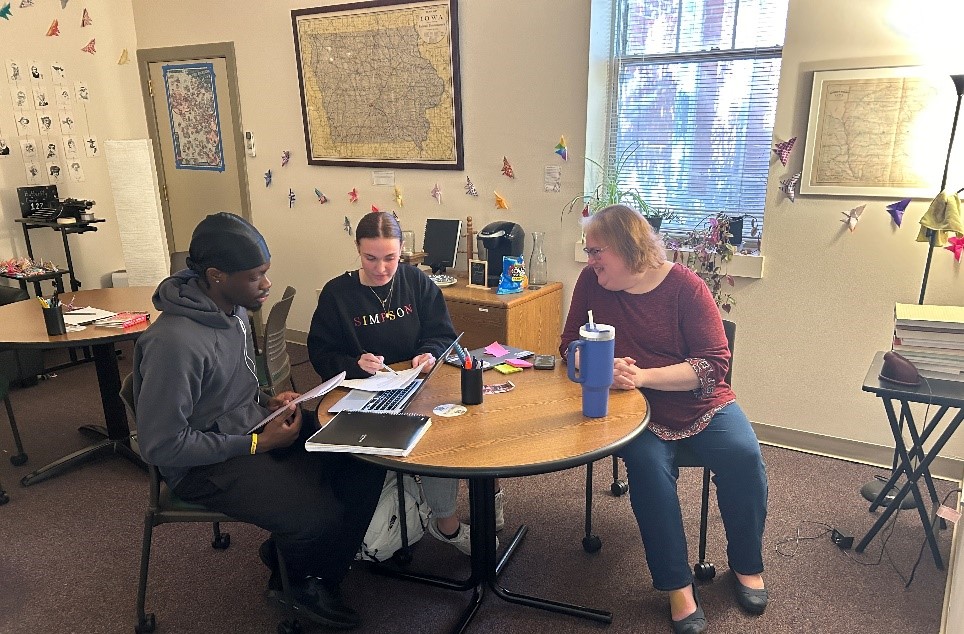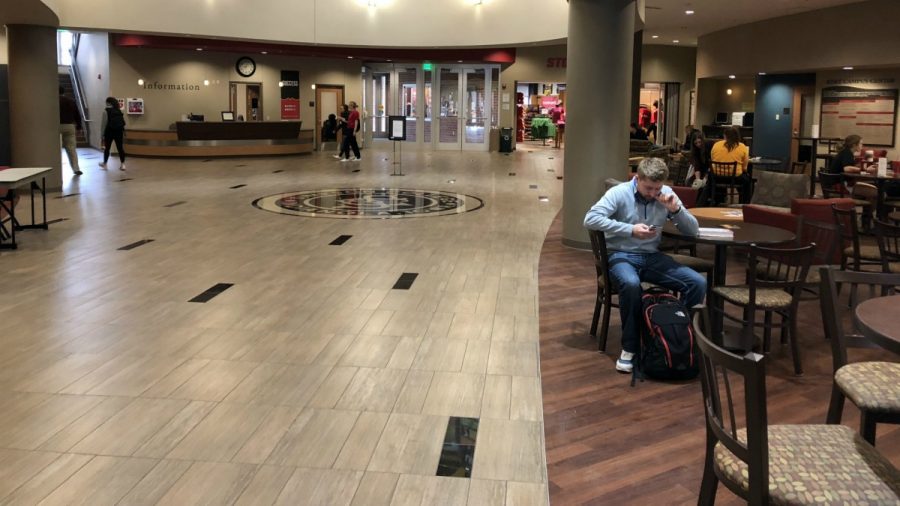Student-athletes will be practicing for less time
February 21, 2012
Student-athletes have a unique challenge they accept when choosing to play sports: balancing the student part with their sport.
With the new schedule in place for next year, that challenge has been made harder for Storm athletes.
Not only is it more difficult for the student-athletes, but also for Ryan Sander, facilities director and head women’s soccer coach.
“It’s going to cause a little bit of stress with coaches,” Sander said. “We may have to limit practice to an hour and a half, and only to that hour and a half. Some coaches like to go over a little bit, and starting next year, that might not work.”
To Sander, there are not many other alternatives.
“It’s just something we’re going to have to figure out and deal with,” Sander said. “This doesn’t affect one program, it affects them all. The first year probably isn’t going to be fun to mess with.”
The new classes will stretch to a full hour on Mondays, Wednesdays and Fridays and then 90 minute periods on Tuesdays and Thursdays. Adjustments will have to be made for the student-athletes because of it.
“They’re going to have to get adjusted with all the changes, like having practices at different times,” Sander said.
As part of his coaching responsibilities, Sander and head men’s soccer coach Rick Issacson had to make adjustments due to time constraints with the current academic schedule.
“We had to split the field in half so both teams could get time in,” Sander said. “It’s not ideal all the time, but it gets us into the same timeframe.”
Along with having to accommodate all the teams at once, having one less facility with Hopper still being out of use is another problem to add.
“It gives us one less place to work with,” Sander said. “We used it as an auxiliary gym but obviously we can’t use it with it having another use.”
With all these adjustments being made, Sander realized that the student-athletes and their time management are top priority.
“Obviously, we want to get the kids out in order for them to have time for supper and to study and to do what they need to do,” Sander said.
For sophomore volleyball player Kalie Kirchoff, this new schedule will make her think about time management more.
“My study hours would change to later in the night which leads to late nights,” Kirchoff said. “Eating habits will change also. Practice would be right after class, with no supper break.”
Kirchoff believes her team’s daily ritual would also change.
“It will definitely affect the management of the team’s daily activities,” Kirchoff said. “Less practice time, missing more classes than I already do for away games and later practices times will interfere with study hours.”
However, coaches do know how important academics are to their Division III education.
“We will work around any class schedule changes,” said head football coach Jim Glogowski. “Our athletes are students first and we will work to do what is in their best interests.”
Head men’s and women’s track coach Dave Cleveland also believes educational responsibilities should come first in terms of shuffling around schedules.
“This is an academic institution, and people are here to get an education,” Cleveland said. “That should be the first priority. With that said, we have many here at Simpson who want to attain a quality athletic experience as well.”
What does Cleveland think has to be done to meet each need?
“I think we have to find a way to add rigor to the classroom because of our new curriculum but also make sure we are doing it in a way that allows our athletes to be able to compete at a high level,” Cleveland said. “We need to find a way that works best to tie in academics and athletics.”
The athletes are aware that the academic priority is in their best interests.
“The coaches are very understanding that academics come first, but as a student-athlete we take practice time very seriously by being there as soon as possible,” Kirchoff said. “Lana (Smith) always reminds us that we are student-athletes. She is always checking in with us to make sure we are staying on top of our work.”
Cleveland believes, however, that having classes go later in the day takes away time for athletics.
“If classes do go until five, it’s going to make it nearly impossible for us to practice,” Cleveland said.
Student-athletes, according to Cleveland, need to hone their time management skills in order to balance academics and athletics.
“They need to be good at budgeting their time,” Cleveland said. “I think it does add one more stressor in trying to cram everything in, but typically, student-athletes receive a higher GPA than the rest of the campus.”
Senior tennis player Adam Summitt has had no problem balancing academics and athletics.
“During the winter we don’t practice until five or after, so that gives us plenty of time during the day before practice to do work or after,” Summitt said. “When we move outside it’s the same, plenty of time after practice to do work.”
As a senior, he doesn’t have to worry about the time change, but he predicts student-athletes will be able to settle into the new schedule.
“Sure, it’s going to suck and students won’t like it, but they will eventually accept it and things will be like normal,” Summitt said. “Student-athletes may miss a few practices, but there’s nothing stopping them from getting practice on their own time or get in the weight room for an extra hour.”






